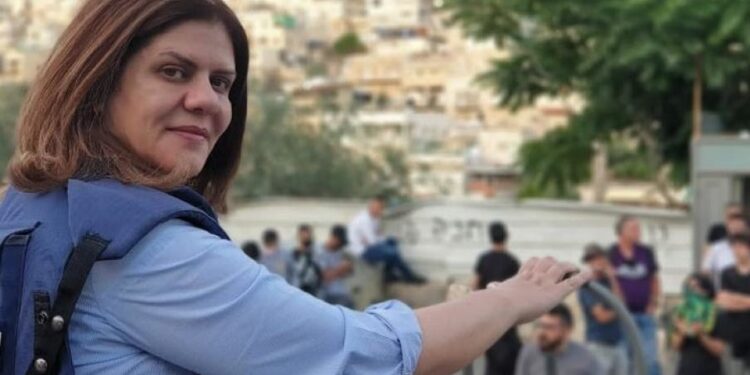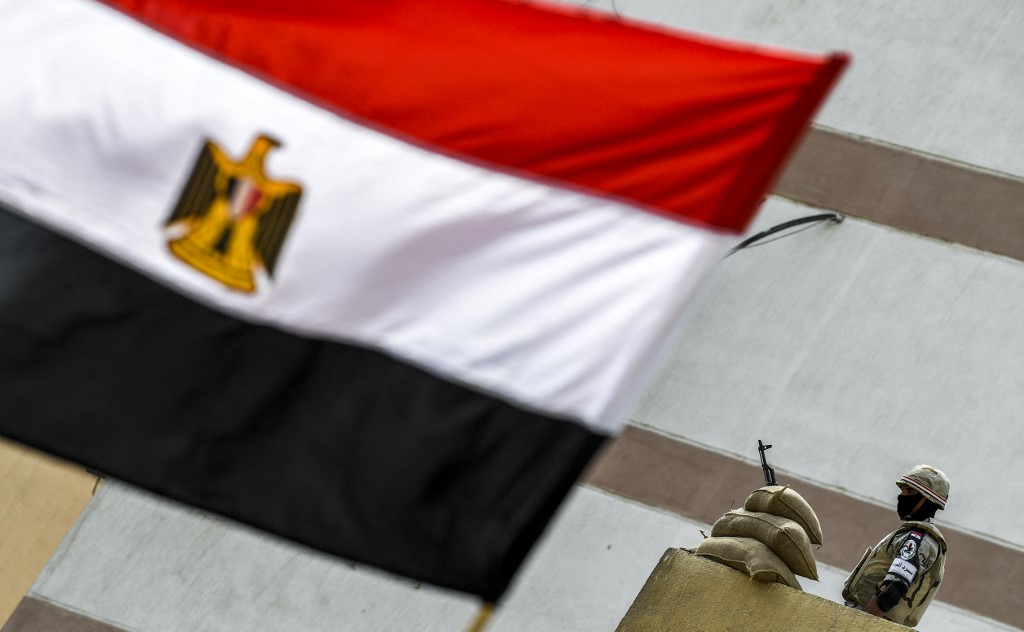Agencies-Gaza post
US media investigation of Abu Akleh’s murder proves what Palestinians have been saying all along
It has been over 40 days since Palestine lost one of its most effective, prominent, and hard-working women in the field of journalism and media to a cold-blooded murderer known for perpetrating atrocities without any responsibility whatsoever.
On May 11, while protecting an Israeli army attack in the northern occupied West Bank refugee camp of Jenin, Shireen Abu Akleh, 51, a Palestinian-American journalist from Jerusalem working with Al Jazeera, was killed by a bullet to the head fired by an Israeli soldier.
Abu Akleh’s tragic killing sparked shock among Palestinians everywhere in the world as she was supposed to be a veteran, iconic journalist who worked for over 25 years for Al Jazeera, covering the Palestinian-Israeli conflict.
It was clear to the Palestinians right from the start that Abu Akleh was killed by Israeli gunfire. Al Jazeera producer, Ali Samoudi, was also wounded by a bullet in the back at the same place, which shows a direct, deliberate targeting of journalists. However, Israel was quick to release accusations claiming that Abu Akleh “could have been killed by a bullet fired by Palestinian gunmen.”
A number of Israeli officials declared that Israeli soldiers were clashing with Palestinian gunmen at the moment Abu Akleh was shot, which could suggest that she may have been killed by Palestinian gunfire; a declaration that would later be strongly refuted by Palestinian and US investigations.
Outgoing Israeli Prime Minister Prime Minister Naftali Bennett took it to Twitter on the day of Abu Akleh’s murder to say that “armed Palestinians” killed the journalist, even asserting that the “information was collected” from the scene.
“According to the information we have gathered, it appears likely that armed Palestinians — who were firing indiscriminately at the time — were responsible for the unfortunate death of the journalist,” he said.
Israeli authorities later called on the Palestinian government to conduct a joint investigation and analysis of what happened, something that the Palestinians firmly rejected since the beginning.
Palestine’s Prime Minister Mohammad Shtayyeh stressed that those who falsify the history of “our people and steal their land are capable of adopting a fake narrative,” stressing that Israel could not be trusted.
“We refused to conduct a joint investigation or to hand over the bullet to Israel and we demand Israel to turn over the rifle that assassinated Abu Akleh,” he said.
The Palestinian Foreign Ministry announced it formally asked the International Criminal Court (ICC) to investigate Abu Akleh’s killing in order to hold Israel accountable for its war crimes in Palestine, precisely the targeted murder of journalists. The Palestinian Public Prosecutor began its own investigation as well.
After a thorough investigation days later, the Palestinian Attorney General Akram Khatib said during a press conference at the presidential headquarters in Ramallah, that based on the Public Prosecution’s report on the killing of Abu Akleh, it was established that the veteran journalist was killed by an armor-piercing projectile fired directly at her head by an Israeli sniper.
He added that according to the report, it was established that an Israeli sniper directly fired a bullet at Abu Akleh’s head while she was trying to escape, although she was wearing a helmet and a vest that was clearly marked with the word “PRESS”.
A number of major US media publications launched their own investigations and reports as well, collecting evidence, videos, live streams, and citing interviews with eyewitnesses, only to find out what the Palestinians have been saying since the day Abu Akleh was murdered: that she was deliberately targeted and shot dead by an Israeli sniper.
CNN said that an investigation it has carried into the incident “offers new evidence — including two videos of the scene of the shooting — that there was no active combat, nor any Palestinian militants, near Abu Akleh in the moments leading up to her death.”
It said that videos obtained by CNN, “corroborated by testimony from eight eyewitnesses, an audio forensic analyst, and an explosive weapons expert, suggest that Abu Akleh was shot dead in a targeted attack by Israeli forces.”
The Associated Press also said, “almost two weeks after the death of the veteran Palestinian-American reporter for Al Jazeera, a reconstruction by The Associated Press lends support to assertions from both Palestinian authorities and Abu Akleh’s colleagues that the bullet that cut her down came from an Israeli gun.”
Last week, The Washington Post published that its own investigation suggested that the slain correspondent was killed by an Israeli soldier, citing multiple interviews with eyewitnesses and examining a number of videos, including live videos that were being streamed at the moment of the shooting as well as audio analysis.
The Post went on to dispute Israeli claims that there was an exchange of gunfire between Israeli forces and Palestinian gunmen at the time Abu Akleh was killed or that a gunman was among the journalists when a soldier opened fire in his direction.
Most recently, The New York Times published an investigation report titled: “The Killing of Shireen Abu Akleh: Tracing a Bullet to an Israeli Convoy”, and said that the bullet that killed Abu Akleh was most likely fired by a soldier from an elite unit.
The NYT added that “the evidence reviewed by The Times showed that there were no armed Palestinians near her when she was shot. It contradicted Israeli claims that, if a soldier had mistakenly killed her, it was because he had been shooting at a Palestinian gunman.”
Despite all the reports released by such prestigious media publications, Israel still hasn’t launched its own investigation into Abu Akleh’s killing.
Minister of Foreign Affairs and Expatriates, Riyad Malki, reported that the assassination of Abu Akleh will be added to the war crimes committed by the Israeli occupation.
Source: WAFA

















